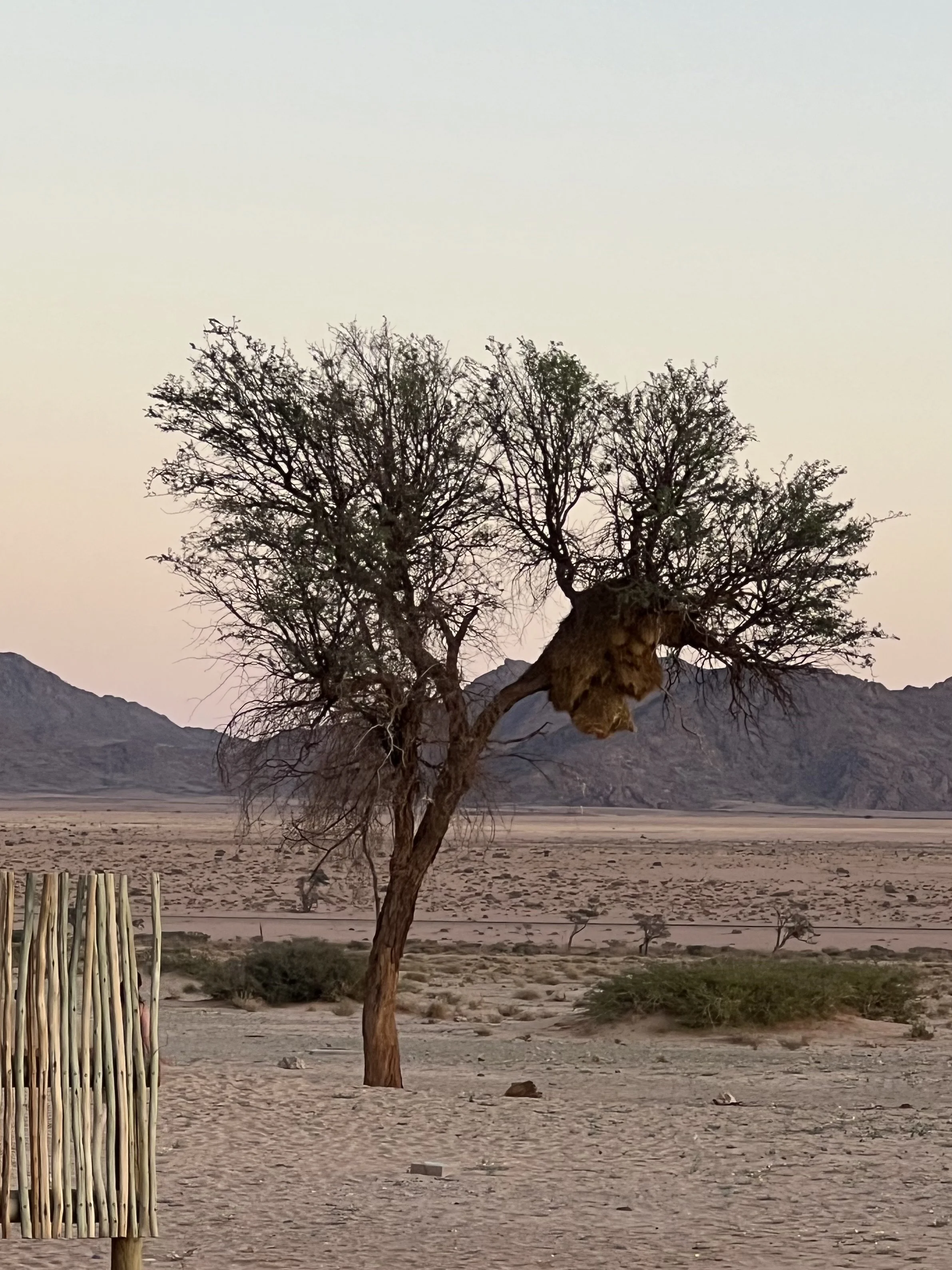“Petit à Petit”
Massive “compound nest” built by tiny, only 14 cm long,“Sociable Weavers” in the Namib Desert. Photo taken while traveling across Namibia in 2024.
Simon says…
Call it morbid curiosity, but I like hearing about the challenges and failures experienced by other expats. While I don’t wish for anyone to struggle or give up on a dream, their shared experiences are validating, informative, and cautionary. Expat websites and YouTube channels are replete with lists ranking the difficulties that come with living in a new culture. “A language barrier” is often at or near the top of these lists. It certainly tops mine. I can verify that learning a new language is a game of Simon Says: a constant forward and backward pitch of succeeding and failing. The accompanying emotional seesaw can be exhausting.
However, my dogged commitment to study French daily, take intensive language classes, catalogue colloquial expressions, and build French friendships has slowly begun to reap rewards. Though far from fluent, my basic level of function offers encouraging and sometimes exhilarating moments.
The “Church” of Les Halles…
Though once stressful, I now enjoy the “liturgy” of Les Halles, the marketplace.
The greeting: a cheerful and properly respectful “Bonjour Madame/Monsieur” (Hello Ma’am/Sir).
The call and response: an exchange of simple questions and answers to instruct and guide a purchase. French vendors LOVE to offer counsel and appreciate even minor supplications.
The offering: a tricky split second to comprehend the purchase price without peeking at the electronic cash register--my ear and brain still struggle to unravel the mystery of French numeric logic. For example, my half a kilo of salmon costs 20,98 euros. French uses four words to express the last two digits, effectively saying “twenty, plus four twenties, plus ten, plus eight” (vingt, quatre vingt, dix, huit). I offer a “hail Mary” and attempt to cobble together the correct amount of cash, or I call upon “plastic” to save me.
The benediction: a mutual exchange of “merci” (thank you) is followed by “bonne journée” (have a good day) or an appropriate variation like “bon weekend” or “à bientôt” (see you soon).
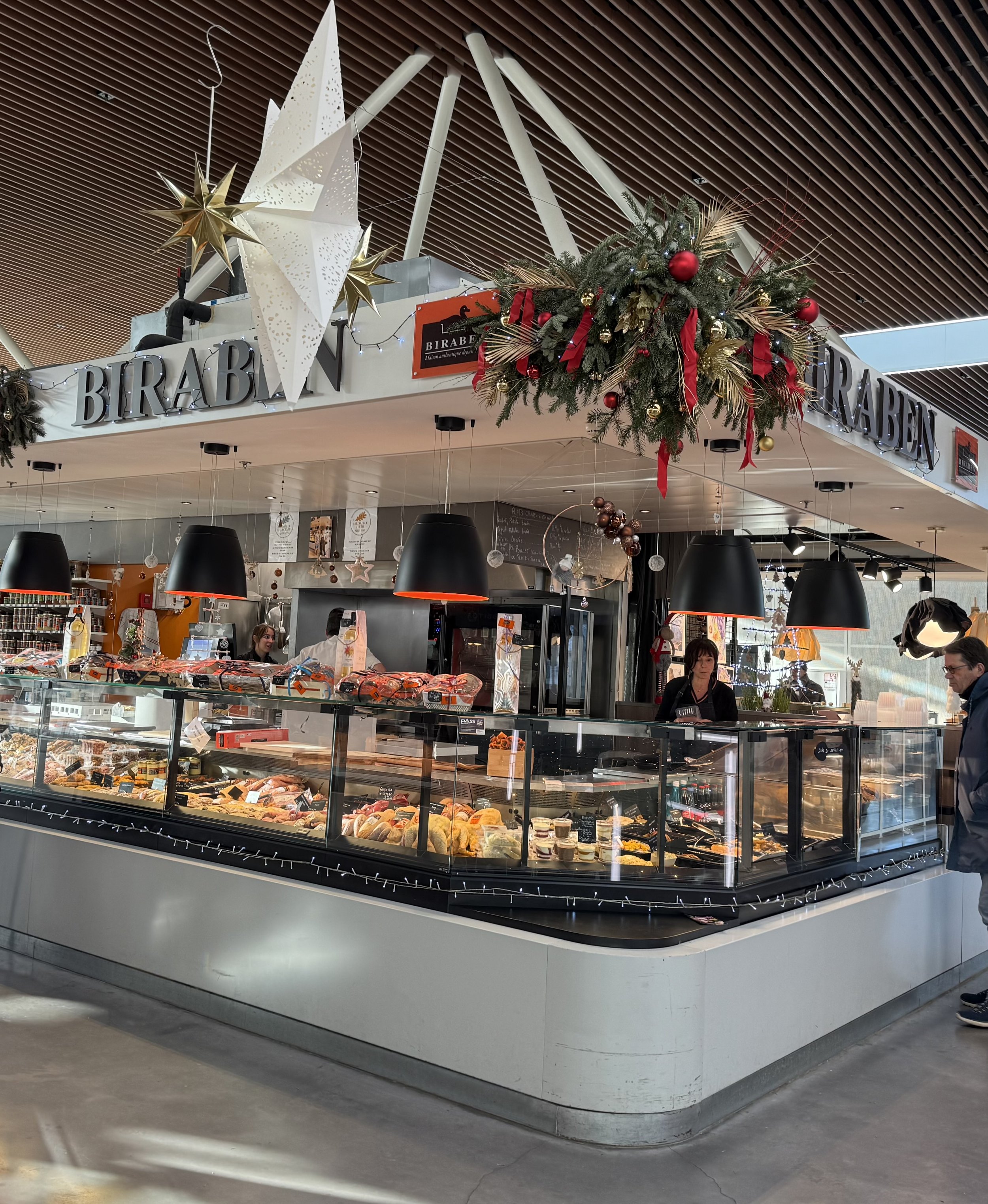
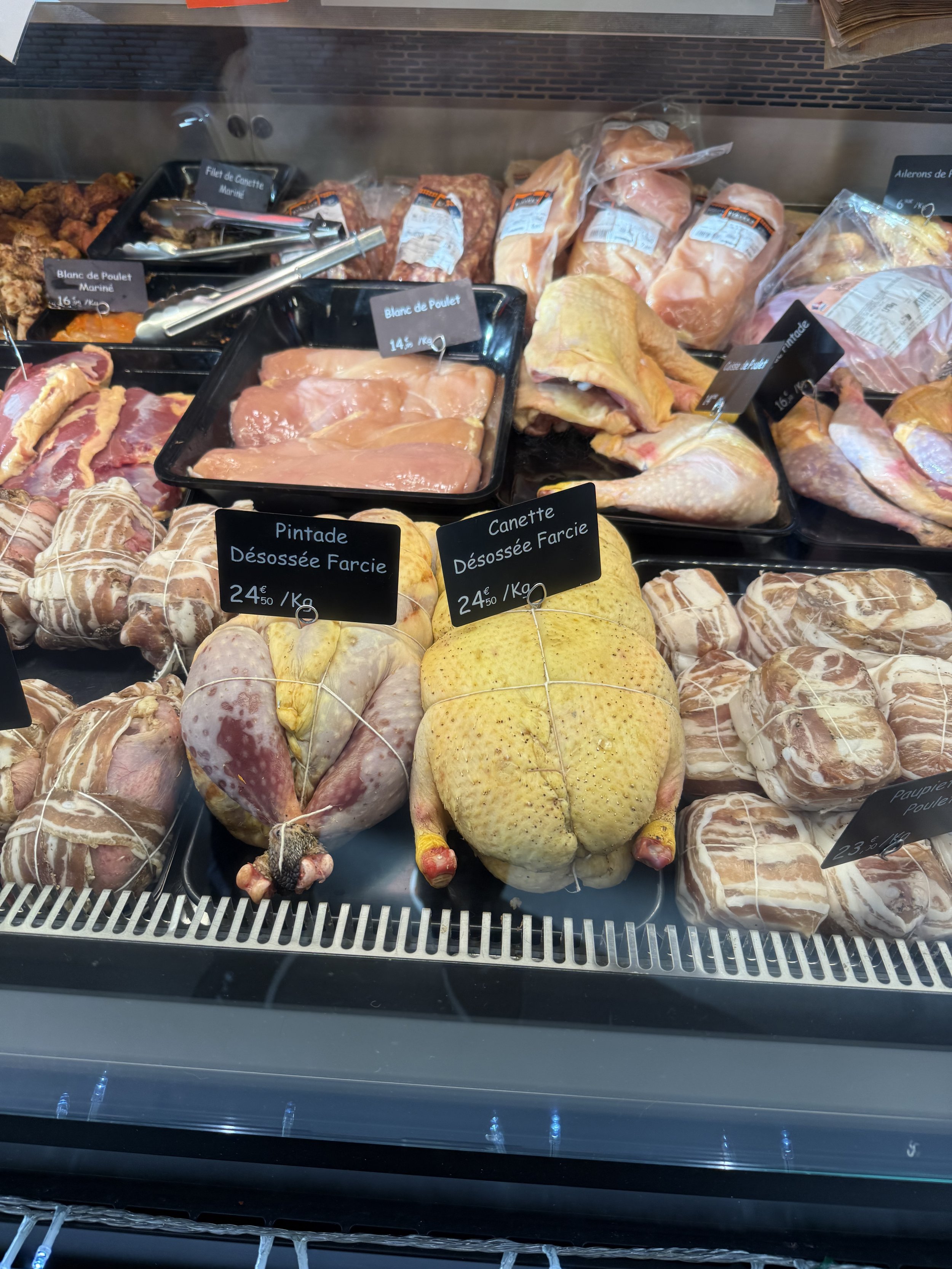


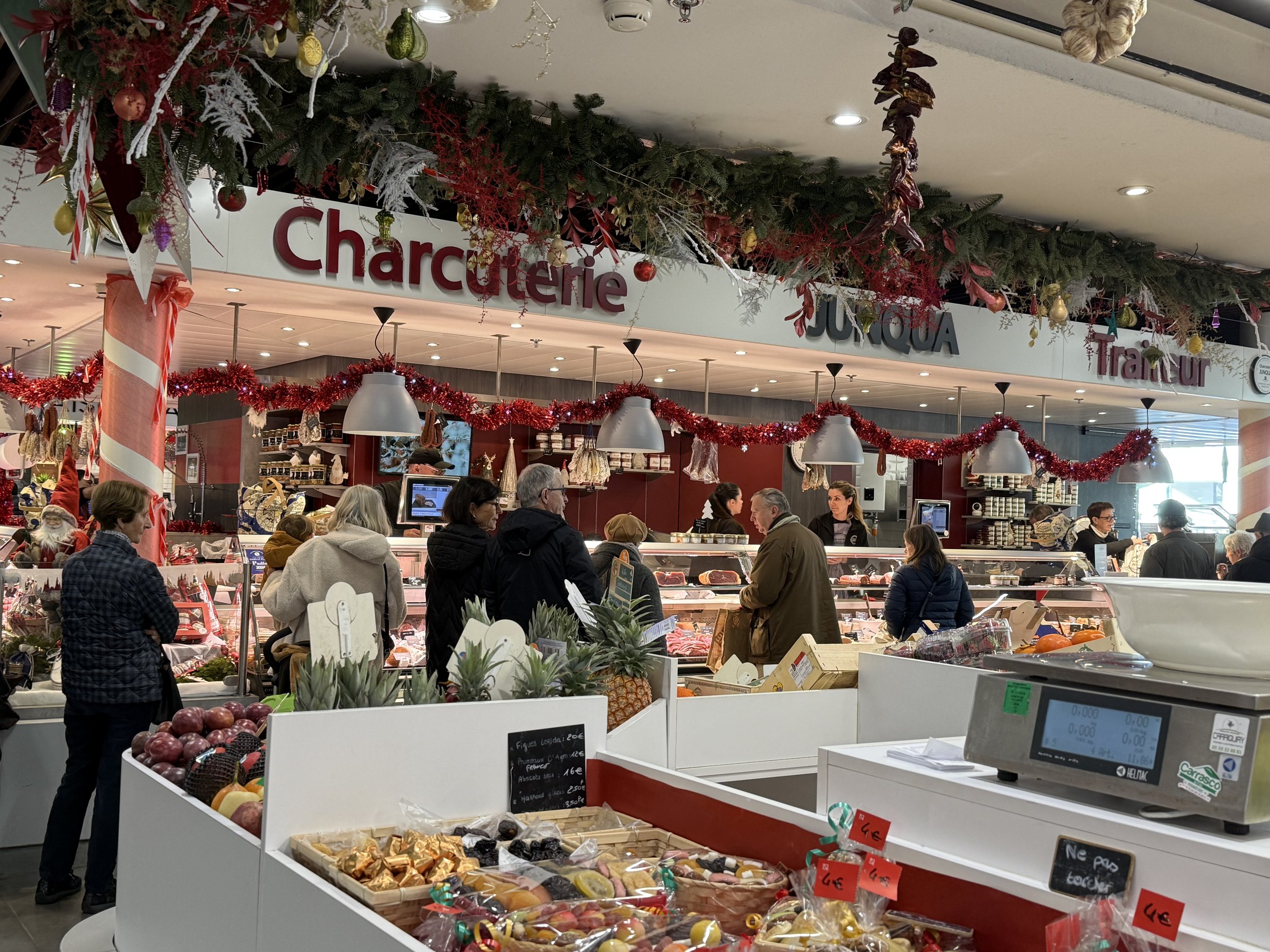
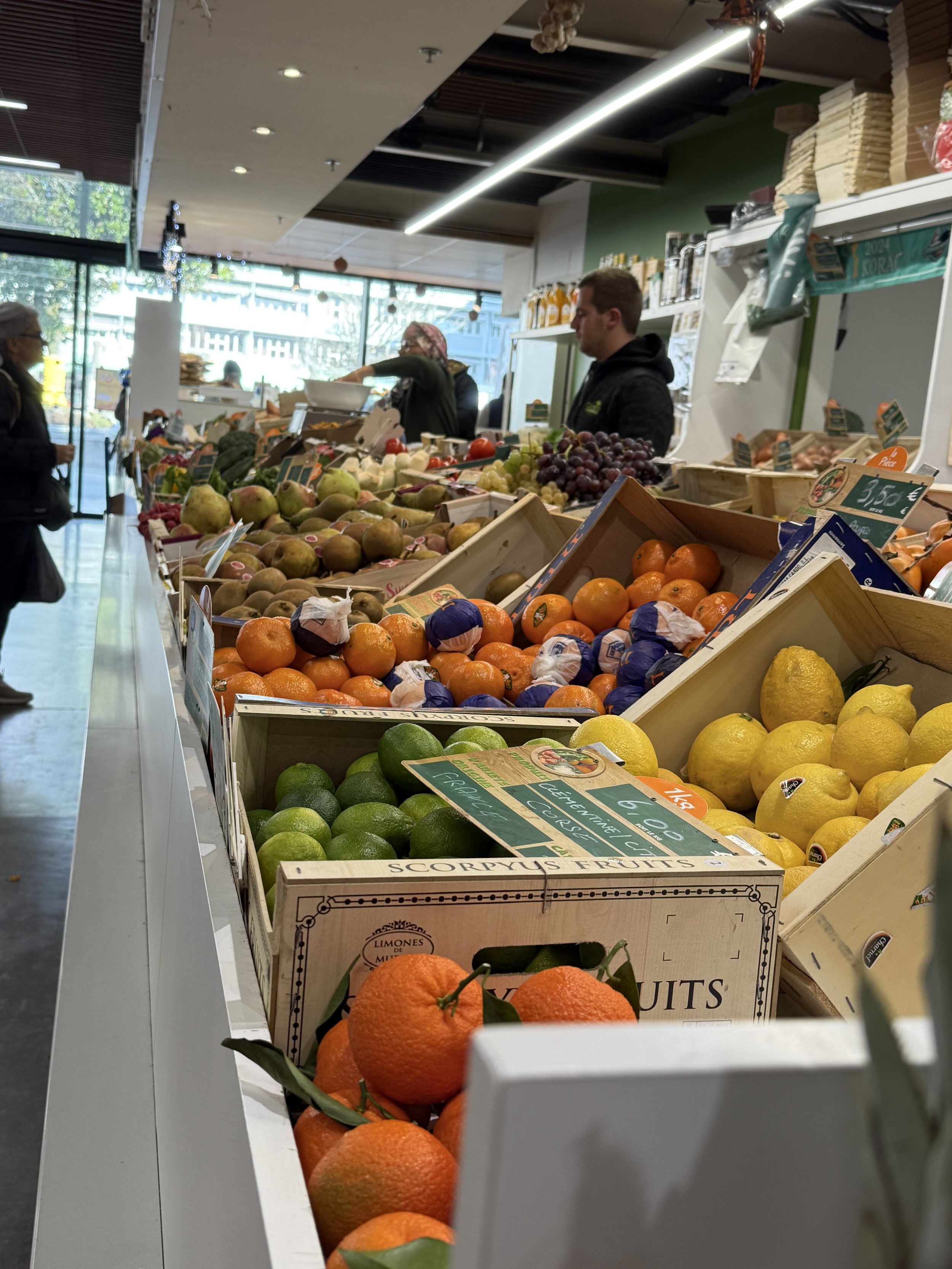
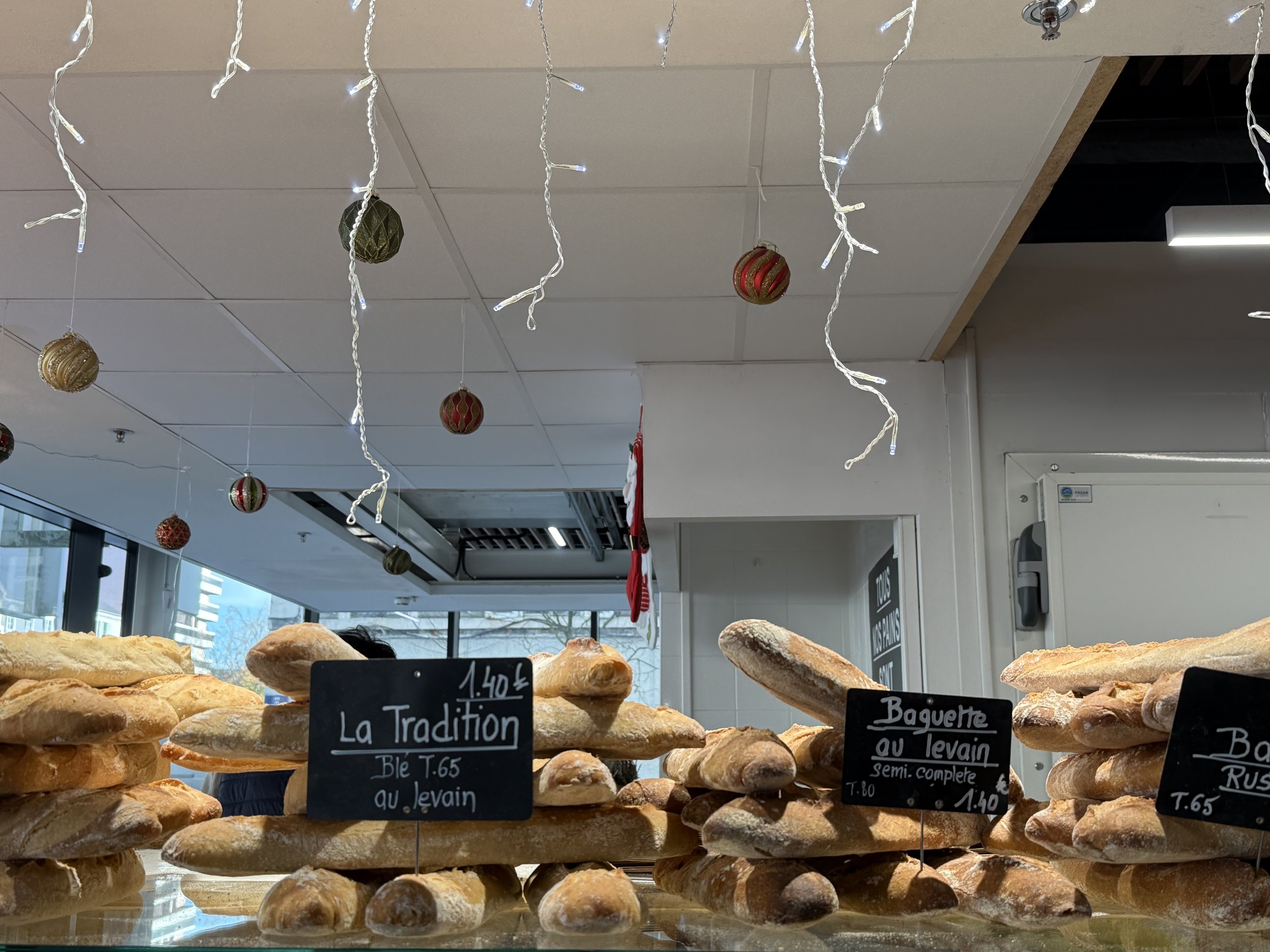
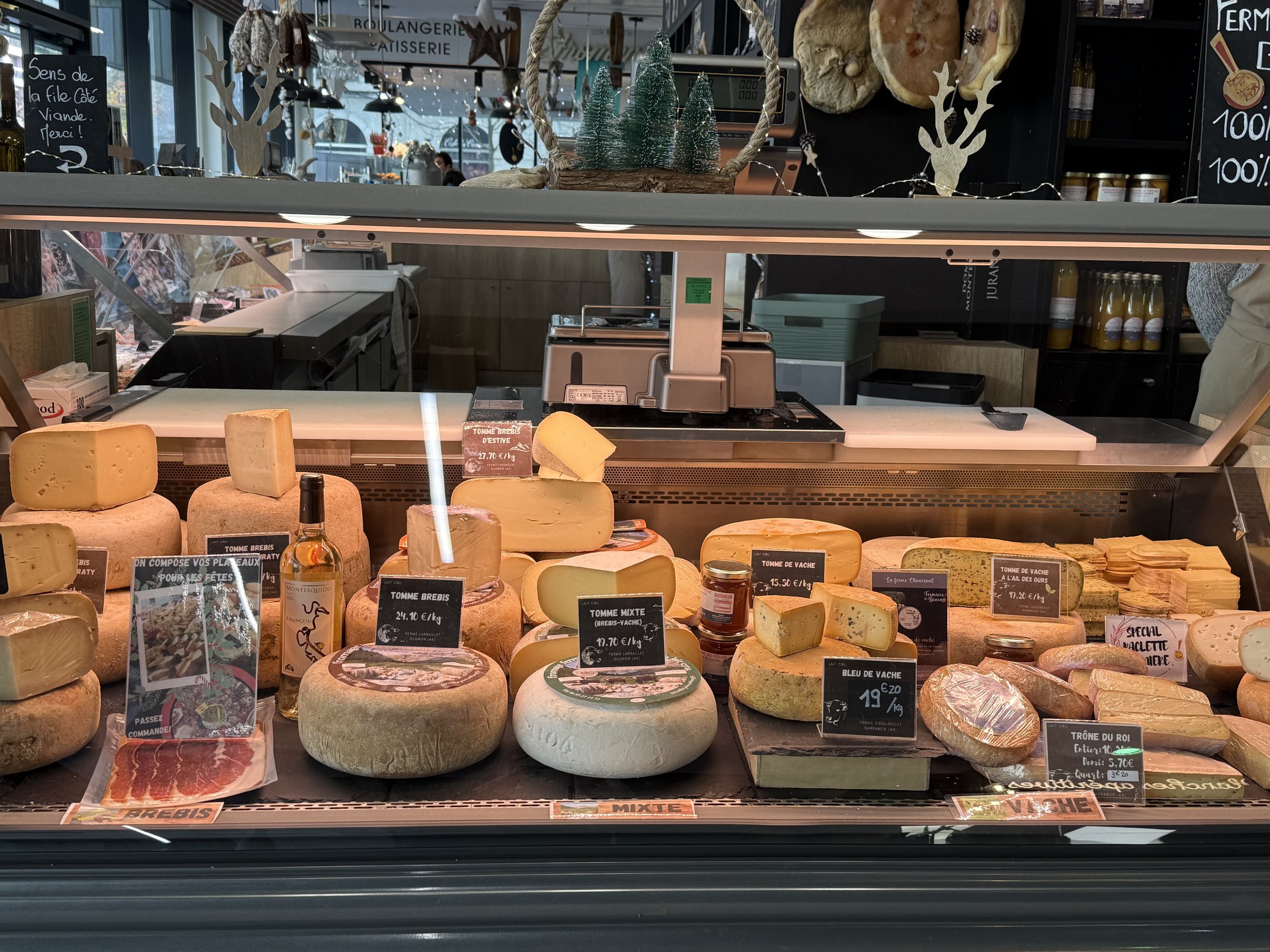
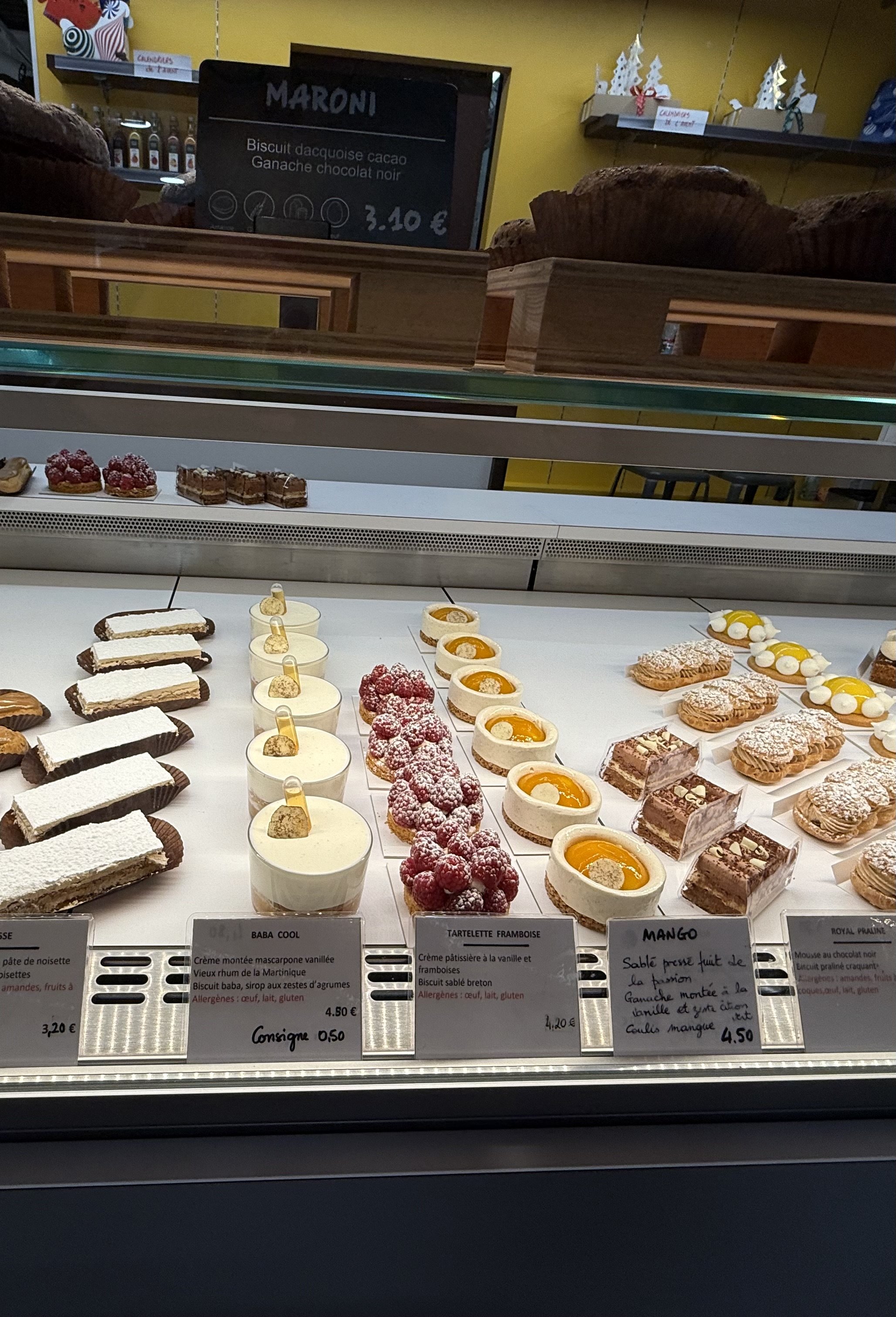
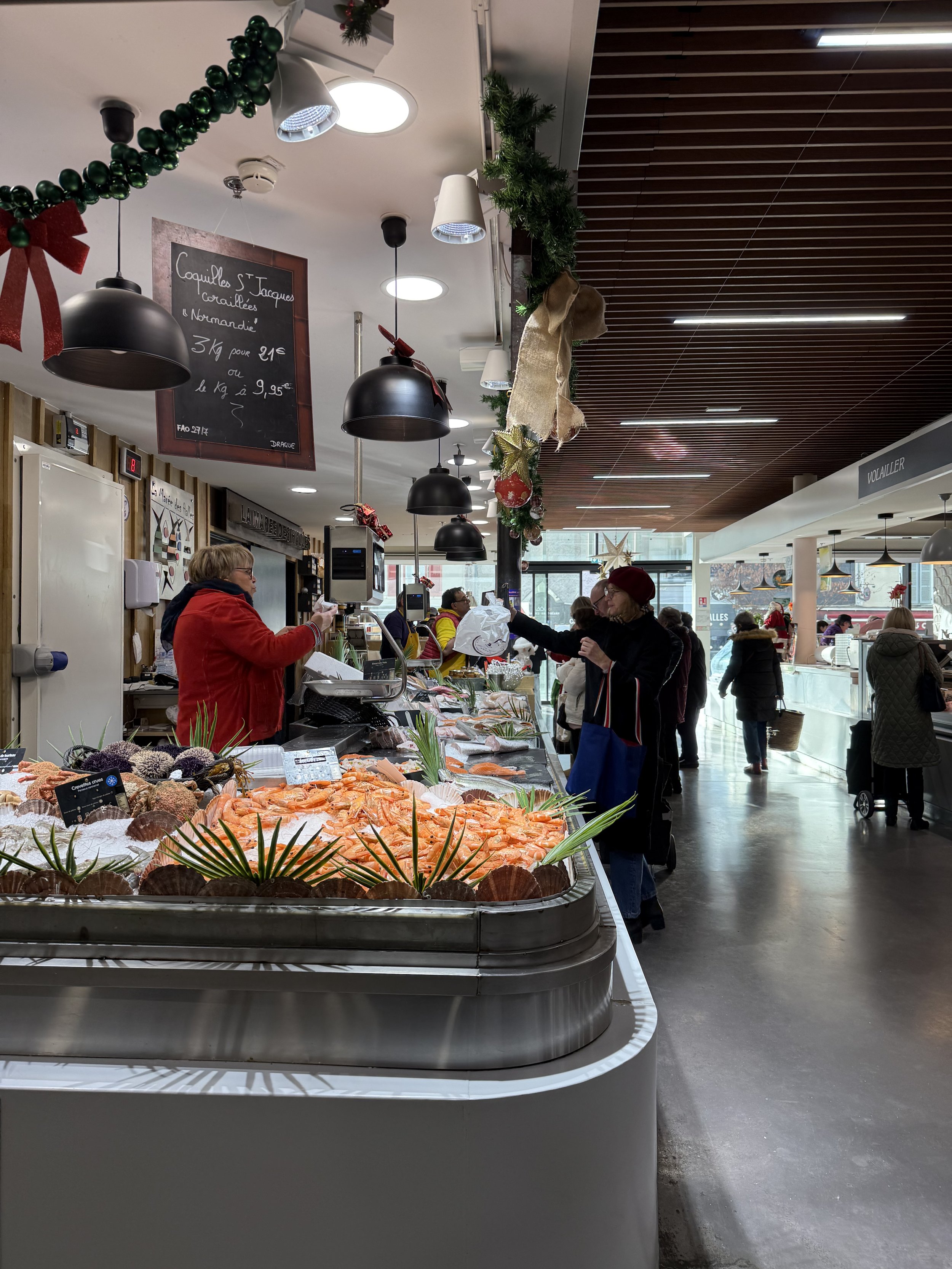
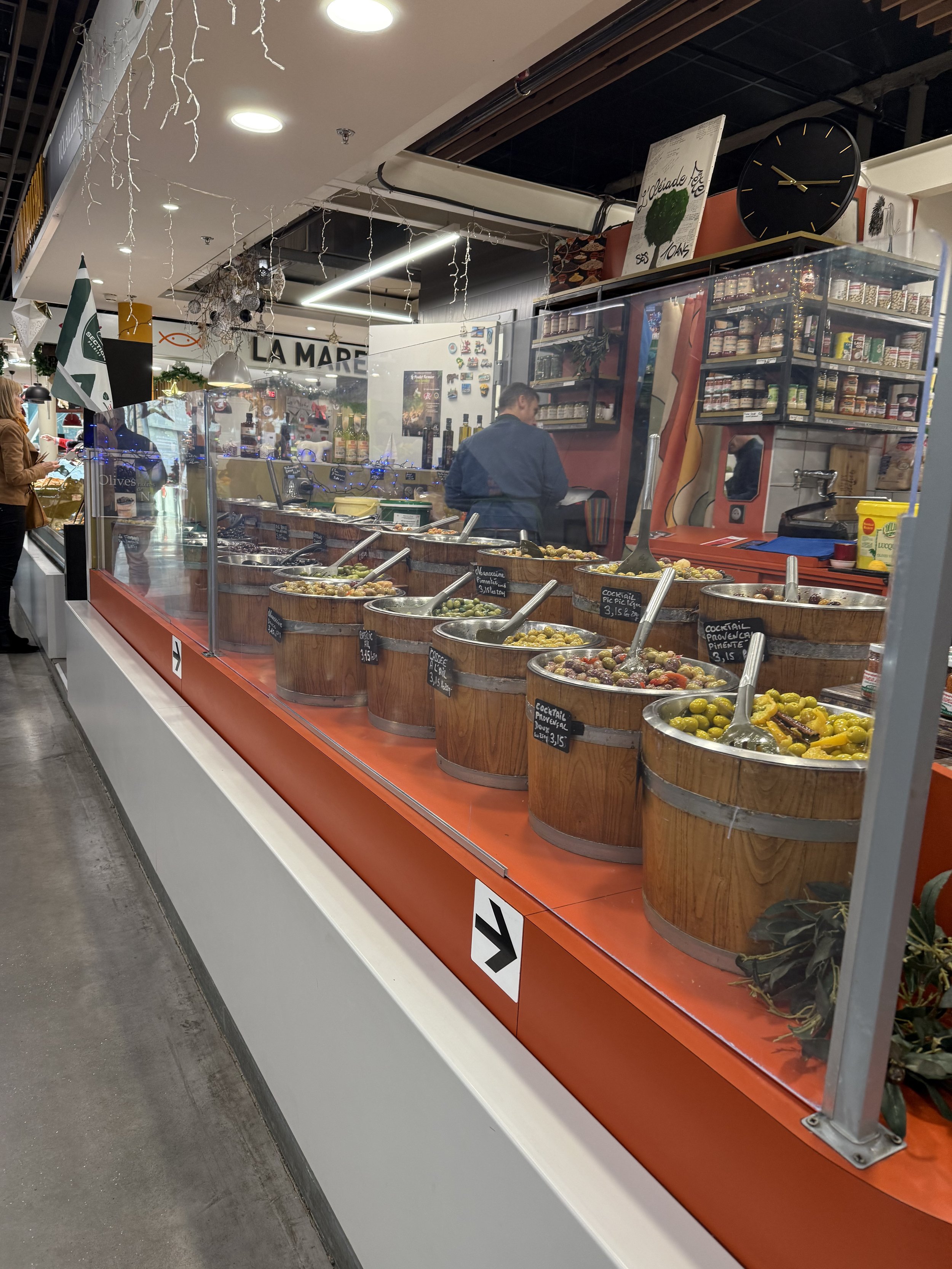
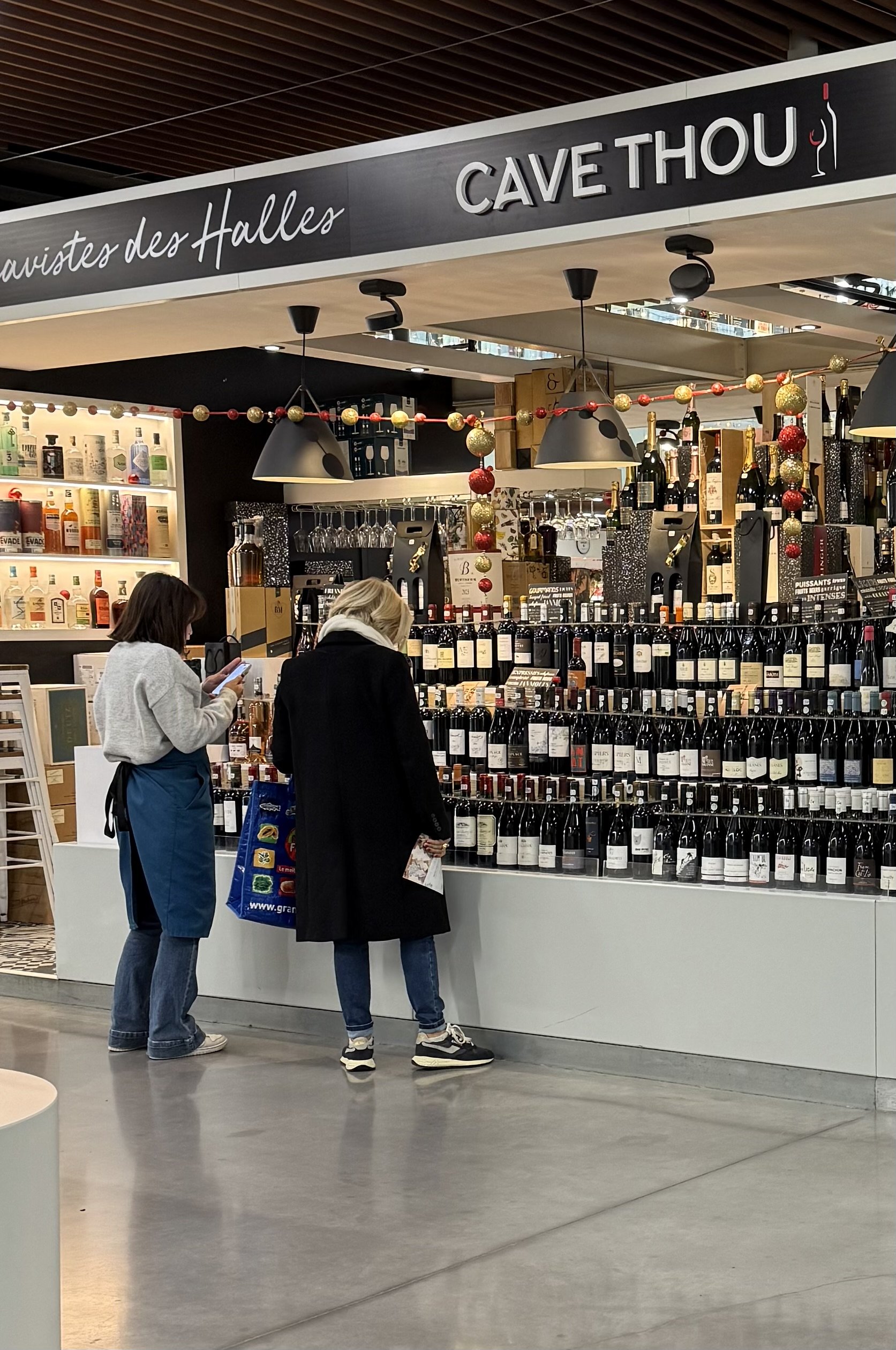
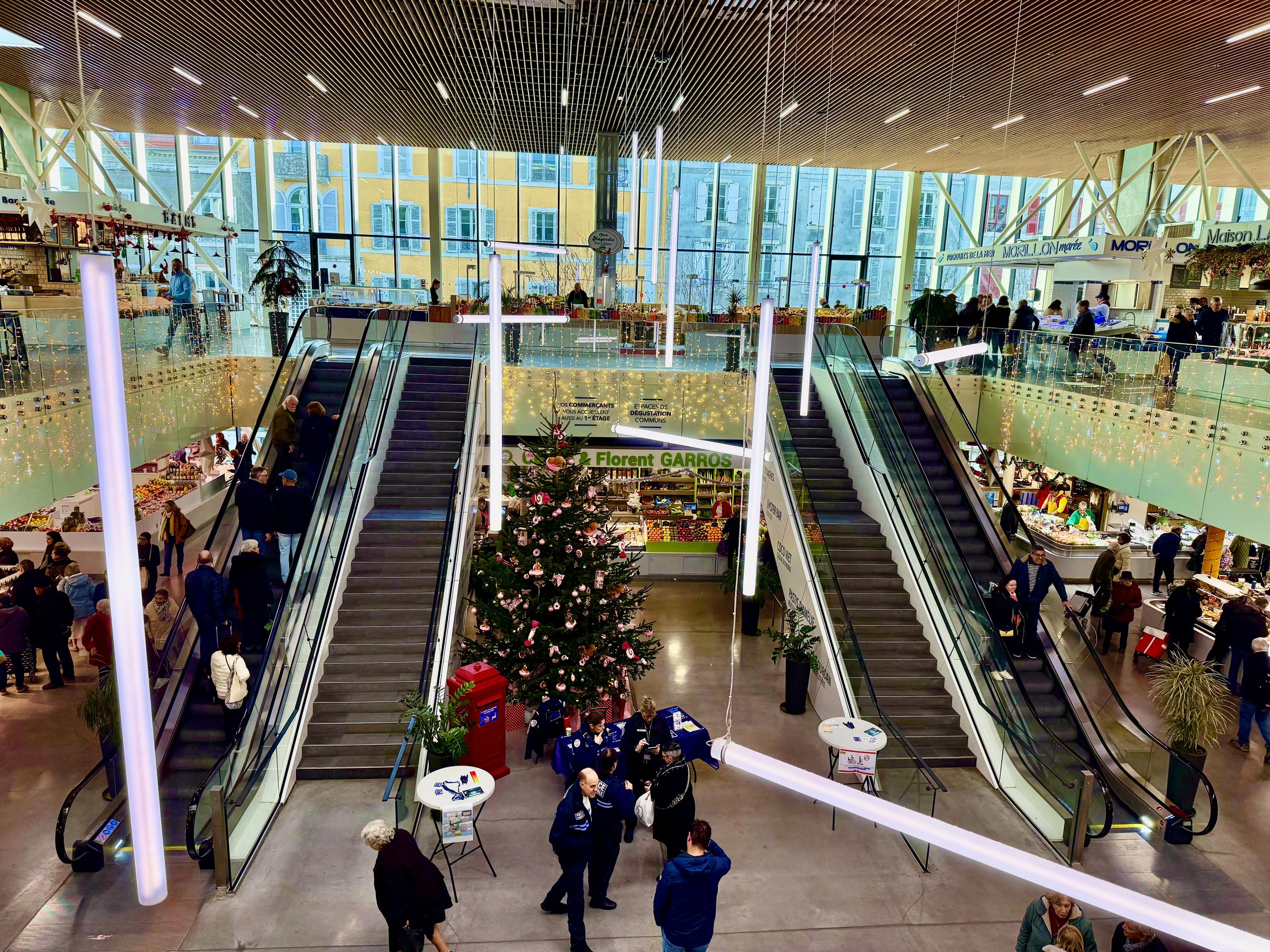
Christmas time at Les Halles.
The rewards of social banter…
I find myself increasingly relaxed when interacting with neighbors coming and going in our building or over cocktails. I prize the moments when my humorous remarks are rewarded with laughter, or a bit of surprising news extracts the ubiquitous “ah bon?” (really?). I have even dared to mimic some classic nonverbal French with authenticity. My favorite is a dramatic eye roll accompanied by shrugged shoulders and a curt, “puffed” exhale used to express disapproval, annoyance, or a disinterested “whatever.” It is as common as the iconic “oh là là!” which is constantly exclaimed in the positive and negative, with additional “là’s” tagged on for greater emphasis .
A wave of linguistic bravery…
These small successes build confidence and occasionally encourage me to stretch beyond my comfort zone. On a recent “power walk,” I overtook a slow procession of taxis with illuminated red roof lights and flanked by national police. I thought the caravan might be escorting a diplomatic delegation from the airport, but none of the vehicles carried passengers. As the line of taxis continued to stretch beyond my view, I began deciphering hand painted messages on rear and side windows. Their calls for action, along with bellowing horns and distant chanting, confirmed my growing suspicion—I had stumbled onto the treasured national past-time of a “manifestation” (a protest).
The trail of taxis, that stretched nearly three kilometers along my walking route, eventually slowed to a halt just a few blocks from home. As the drivers began to congregate on the street outside their vehicles, a sudden wave of linguistic bravery urged me off the sidewalk and toward two of the men. I approached with my best “Bonjour Messieurs” and apologized in advance for my novice communication skills, a likely unnecessary admission. Then without hesitation, I launched into questions about the protest. The two drivers looked pleasantly surprised by my interest and responded with an enthusiastic explanation of their grievances. Despite the rapid-fire of unfamiliar vocabulary and shifting verb tenses, I grasped their general concerns over lost wages due to alternate transport services and government threats to discontinue pay during “work stoppage” actions. (The irony of launching a strike and protest in response to the latter, was not lost on me.)
Fortunately, I had heard a news report debating some of the proposed new policies. That, along with a polite request for “lentement, si’l vous plait” (slowly please), aided my comprehension. When I suggested we had similar problems in the US, they agreed and contended that labor and social benefits were being threatened around the world. We shared a mutual sigh but ended on a more positive note. Initially assuming I was a tourist and surprised that I now lived here, the men wished me a happy life in Pau. After a tongue-in-cheek suggestion that the local wine was already assisting my quest for a happy life, I offered them “bon courage” (good courage) and crossed back to the sidewalk.
A sense of belonging…
I strode the last few blocks toward home with renewed gratification for my expat life and a deeper conviction that language is the key that unlocks culture and a sense of belonging in it. As I opened the gate to our building’s gardens, the scent of sun-warmed roses, the “coo” of mourning doves, and the chatter of magpies filled the air. It reminded me of a favorite French idiom, “petit à petit, l’oiseau fait son nid”: little by little the bird builds his nest. My hope, despite frequent wobbles, is that little by little I will someday nestle comfortably in this new, adopted language.
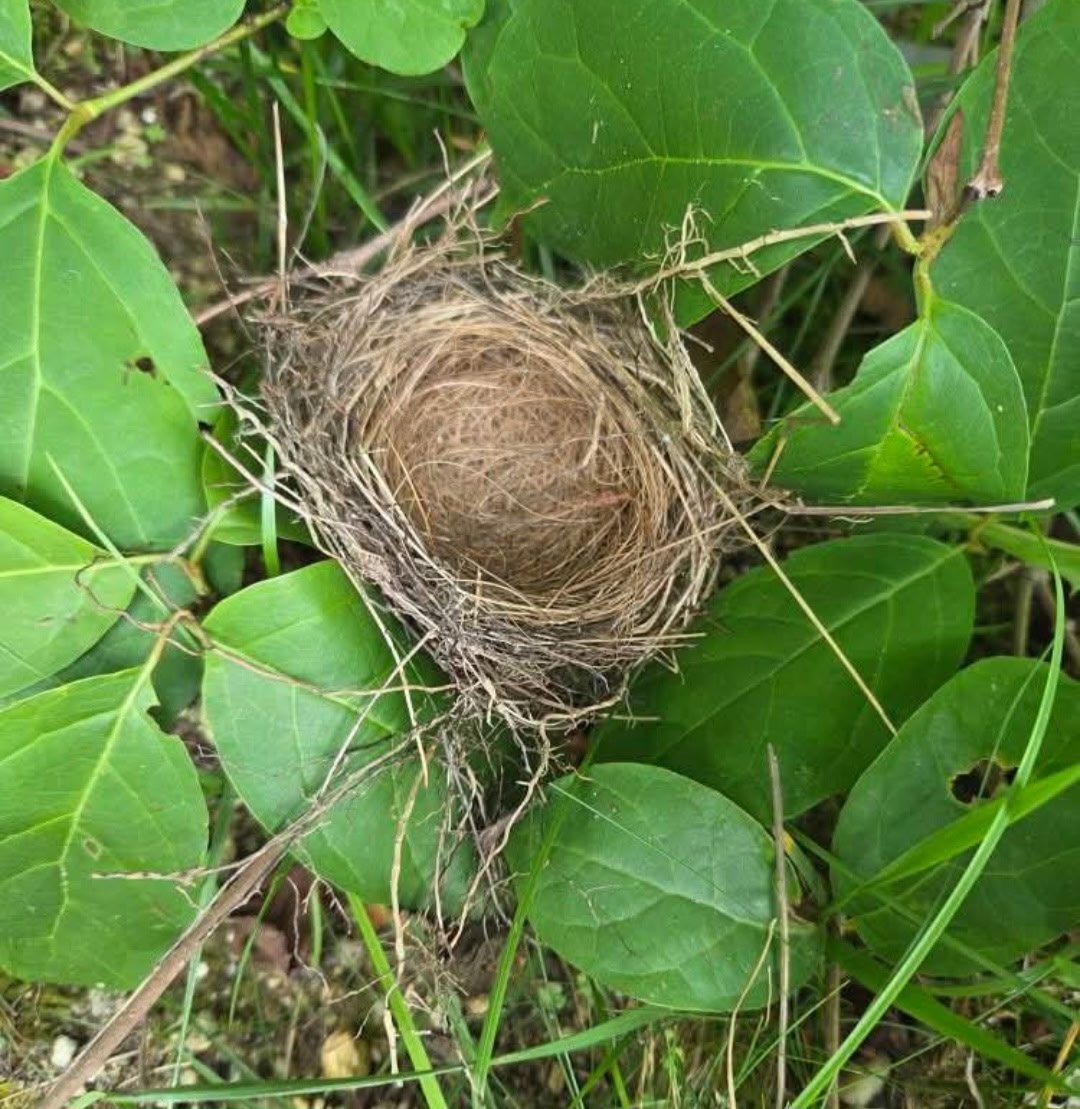
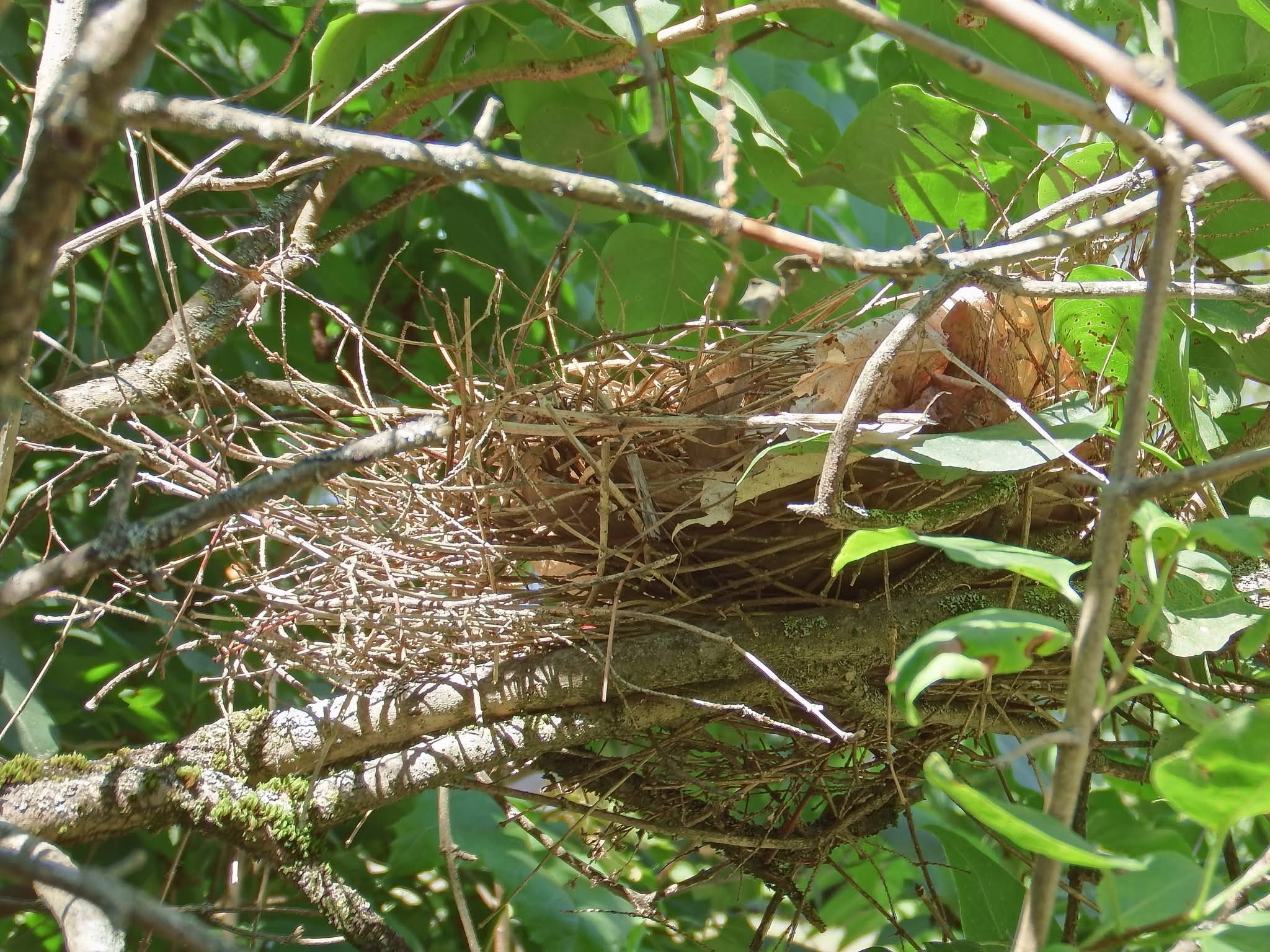
Photos taken by my sister at her woodsy, western Massachusetts home.

